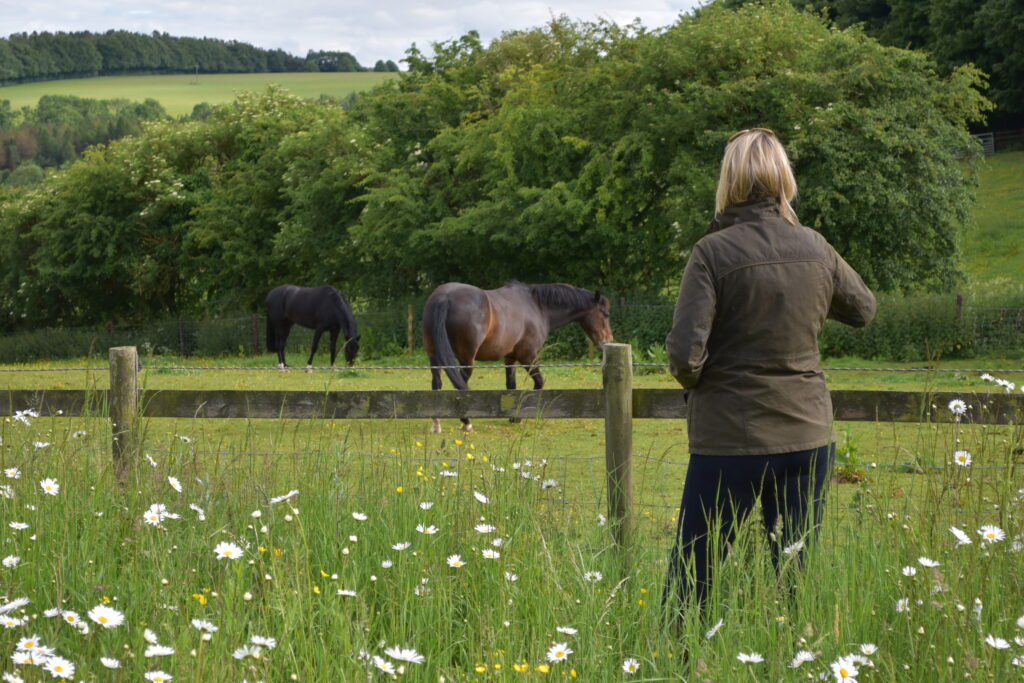The importance of grasslands in the UK
Within the UK, grasslands cover around 40% of the land. They are a critically important environment for biodiversity and play an important role in the fight against climate change. A healthy, biodiverse grassland can act as a significant carbon store if left undisturbed, with UK grassland currently estimated to store 2 billion tones of carbon in the soil. However, much of the grassland in the UK forms part of farmland, or used for grazing, with little species-rich ‘natural’, or more commonly termed unimproved grassland spaces remaining.
Unfortunately there are currently very few measures in place for protecting grassland in the UK. Some areas are designated as sites of special scientific interest (SSSI), but there is no official governance strategy, policy or Government-led Taskforce in place, in the same way that exists for woodlands, and peatland (Pasture for Life). As a result, good grassland management and the opportunity to enhance these special environments for the good of the climate and ecosystem diversity, is left to the goodwill of those managing the land.
This puts equestrians managing land for their horses in a unique position to make a significant difference for nature, whilst also contributing to climate change solutions. There are approximately 850,000 horses in the UK (British Equestrian), of which their grazing spaces will account for a considerable amount of grassland.
How does good grassland management support nature?
- Helps to improve soil health through stabilising root structures which reduce erosion & run off & enhanced microbial activity, water retention & nutrient cycling.
- Improves resilience to weeds & resistance to pest infections, reducing the need for the use of herbicides & pesticides on paddocks.
- Increases biodiversity in plant & wildlife species, crucial for pollinators & invertebrates which provide essential ecosystem services.
- Act as a significant and reliable carbon-store, locking away carbon below the surface in the soils.
- Can aid in regulating the water cycle, reducing flooding by slowing down water flow to rivers and lakes and filtering the water to improve quality of freshwater systems.
How does good grassland benefit the horse?

Horses thrive in a healthy natural environment, and there are numerous health benefits for horses that are able to graze on a diverse sward, surrounded by hedging and trees.
Increasing the species-diversity of your sward provides balanced nutritious forage for your horse and pony. Including horse-safe herbs, wildflowers and a diversity of grasses provides a balanced diet, good for digestive health and may even support horses struggling with health issues such as laminitis. This is because traditional pastures dominated by ryegrass are high in sugar and low in fibre, which might be ideal for a cow, but is certainly not best for a horse due to their unique digestive system.
Diversity also encourages foraging behaviour in grazing animals. Horses can select what to graze on, based on their own needs or preferences. This not only provides physical health benefits, but also provides mental stimulation, supporting the mental health of the horses.
How to support and enhance your grasslands
- Ensuring that paddocks are able to rest by rotating horses on a regular basis. There are a number of approaches that can be taken for this, such as mob grazing (short grazing period i.e. daily), traditional rotational grazing, the Equiculture approach etc. Which of these approaches is best will depend on individual circumstances for what is feasible and practical.
- Allow sufficient grass growth before permitting horses to graze. The grass should not be grazed any shorter than below 5cm. Once able to rest, the grass should be allowed to grow to at least 15cm before horses are put back on to graze (Equine Ecologist).
- Introduce more diversity into the grass sward, not only of grass species but horse-safe herbs and wildflowers too. This will benefit the health of the horse as well as supporting a range of plant and wildlife species.
- Give space to nature to increase biodiversity. This could be done by giving up paddock borders, or poor grazing spaces which can instead be used to plant trees and hedges. This provides more habitat for wildlife and will increase biodiversity. You can also provide nature corridors, to connect properties such as growing hedges along fence lines to allow wildlife to move between different areas freely.
References
- https://www.equiculture.net/blog/equiculture-rewilding-with-your-horse
- https://www.wildlifetrusts.org/habitats/grassland#:~:text=Grasslands%20also%20existed%20in%20areas,UK’s%20land%20surface%20is%20grassland.
- https://www.pastureforlife.org/media/2023/08/Grassland-Action-Plan-for-England-DRAFT-not-for-wider-circulation-yet-1.pdf
- https://www.britishequestrian.org.uk/assets/EXTRA_Docs/Short%20State%20of%20the%20Nation.pdf
- https://www.nature.scot/doc/species-rich-grasslands-guidance-leaflet#:~:text=Species%20Rich%20Grasslands%20%2D%20What%20they%20are%20and%20why%20they%20matter&text=Species%20rich%20grasslands%20have%20a,grasslands%20and%20manage%20them%20sympathetically.
- https://www.pastureforlife.org/media/2023/05/Mob-Grazing-for-Diversity-End-of-Project-Report-March-2023.pdf
- equine ecologist
Related

World Tote Association puts the environment at the top of the agenda
White Griffin Director, Ruth Dancer, delivered the keynote speech at the 2022 inaugural WOTA conference

White Griffin create flagship education project with the British Racing School
The partnership will enable the education of the whole British horse racing industry in the fundamentals of environmental sustainability
Ready to start your journey?
Get in touch today.
Contact us

